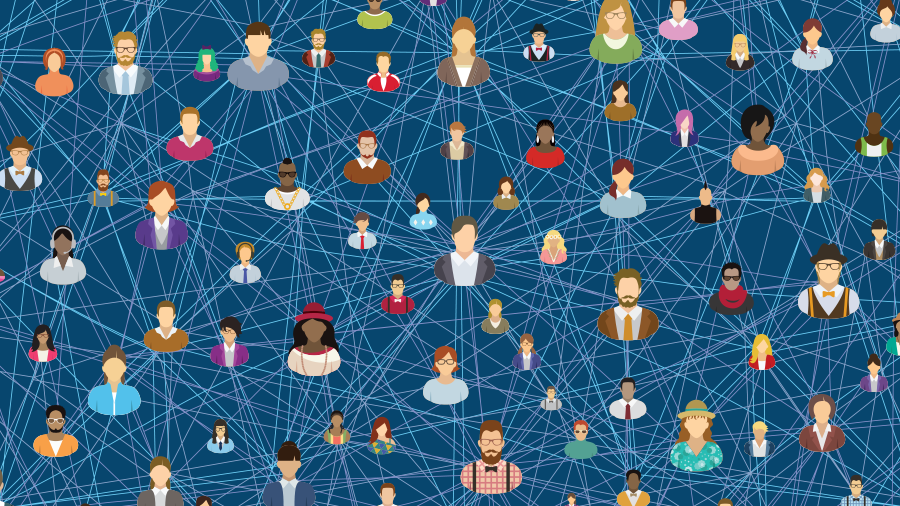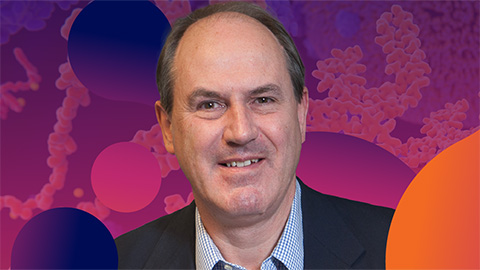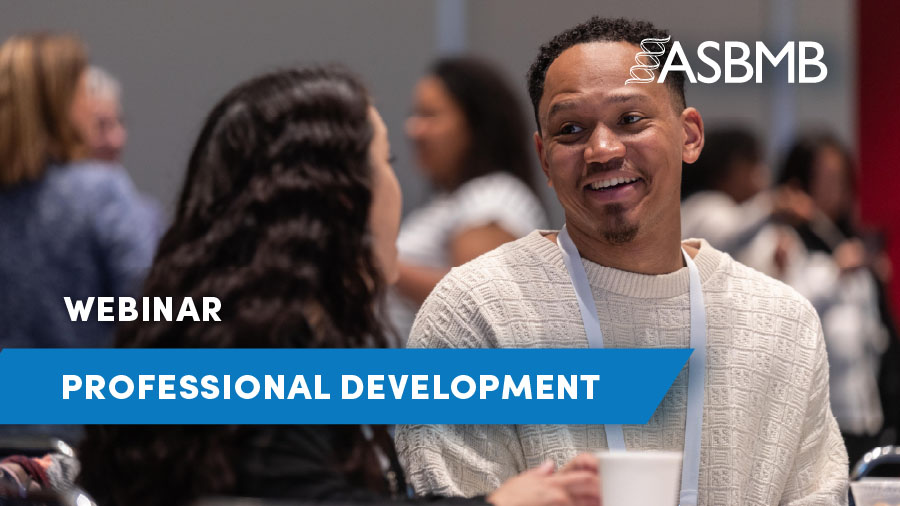Calendar of events, awards and opportunities
Every week, we update this list with new meetings, awards, scholarships and events to help you advance your career. If you’d like us to feature something that you’re offering to the bioscience community, email us with the subject line “For calendar.” ASBMB members’ offerings take priority, and we do not promote products/services. Learn how to advertise in ASBMB Today.

May 10: Colloquium on G protein–coupled receptors
This colloquium, an extension of the Experimental Biology meeting, will feature as the keynote speaker Nobel laureate Brian Kobilka, who will give a talk titled "Structural Insights into the Dynamic Process of G Protein–Coupled Receptor Activation." (Read our feature on Kobilka, who won the 2013 ASBMB Earl and Thressa Stadtman Distinguished Scientist Award.) See the full list of speakers. Also, please note that you must have already registered for EB to attend this add-on event.
May 11: Talk about genetics of chromosome biology
Douglas Koshland of the University of California, Berkeley, will present the Genetics Society of America's 2021 Medal Seminar. Here is how the talk is described: "A holy grail of genetic studies of biological processes is to isolate and characterize null alleles of relevant genes. In this lecture, Koshland will provide past and present examples of the critical importance of alternative alleles in elucidating important features of chromosome biology and to inform on the future of genetics in the CRISPR-dominated world." Learn more.

May 11, 18 & 25: Protonic bioenergetics and action potential
Save the dates for this ASBMB series about the latest discoveries and progress in mitochondria, neurons and other biosystems. It's being organized by James W. Lee at Old Dominion University. Learn more.
May 12: Webinar on demystifying mental health support
ASBMB and other scientific societies are holding a free interactive webinar outlining common mental health challenges of STEMM graduate students and providing strategies for managing them. Learn when to use small steps to address these challenges yourself and when you may need professional help. On-campus and off-campus mental resources, as well as strategies for accessing care, will be discussed. The event is at 1 p.m. Eastern on May 12. Learn more.
May 12: Webinar on genome editing and the environment
The emergence of genome editing technologies, such as CRISPR, have opened new possibilities for engineering the world around us. At this Genetics Society of America event, join participants of the Personal Genetics Education Project to learn about their experiences and strategies for engaging with broad audiences in sensitive conversations about genome editing and the environment. Learn more.

May 24: New deadline for ASBMB award nominations
The ASBMB Annual Awards are given to outstanding professionals who have been recognized by their peers for contributions to their fields, education and diversity. The recipients will give talks about their work at the 2022 ASBMB Annual Meeting. You can nominate or self-nominate. See a list of available awards and prepare your nomination package.
May 26: Talk about RNA-guided DNA insertion with CAST
Feng Zhang of the Howard Hughes Medical Institute and the Massachusetts Institute of Technology will present the Genetics Society of America's 2021 Novitski Prize Seminar. Here's how it's described: "Over the past few years, there has been a growing appreciation for the natural diversity of CRISPR–Cas systems, adaptive immune systems microbes use to defend against invading foreign genetic elements. Components of CRISPR–Cas systems have also been found to be associated with transposable elements, creating programmable jumping genes. We have been working to characterize CRISPR-associated transposon (CAST) systems and understand the mechanism of these fascinating molecular machines. Learn more.
May 27: Application deadline for DOE internships
The U.S. Department of Energy is accepting applications through May 27 for the fall cohort of its Science Undergraduate Laboratory Internships Program. This program allows undergraduates and recent grads to conduct mentored research in DOE labs across the nation. Learn more.
May 31: Application deadline for IUBMB editorship
The International Union of Biochemistry and Molecular Biology is seeking a new editor for its journal Biotechnology and Applied Biochemistry. The editor has a three-year term. Applications are due May 31. See the job description and application instructions.
June 7: Insomnia biomarkers awards for junior researchers
The American Academy of Sleep Medicine Foundation has established a new award program for junior researchers. The Focused Projects Award for Junior Investigators is for scientists pursuing basic, translational, clinical or population sleep and circadian science. The work should be related to the identification, evaluation or validation of insomnia biomarkers. The $50,000 award provides seed funding for mentored research projects. We're told the AASM Foundation hopes to issue three awards. The deadline is June 7. Learn more.

June 20–25: Teaching science with big data
This international meeting guides faculty on how to teach using web-based, free-access large data sets. How big is "big data"? Data that is so large, fast or complex that it's difficult or impossible to process using traditional methods. Join us to learn these valuable teaching skills to prepare students for the future. Sponsored by the ASBMB and the International Union of Biochemistry and Molecular Biology. Registration and abstract submission opening soon.

June 21: Flux-independent signaling by ionotropic receptors
Save the date for the virtual event "Flux-independent signaling by ionotropic receptors: Unforeseen roles and complexities" on June 21. The organizers say it will be of interest to neuroscientists, cell biologists, molecular biologists and biochemists, among others, involved in the study of cell physiology and function in health and disease. We'll update this item as soon as we know about the abstract and registration deadline. In the meantime, read the event description.

July 21–23: Extracellular vesicle studies: From benchtop to therapeutics
Extracellular vesicles are secreted, membrane-bound compartments containing DNA and cytoplasmic constituent molecules of all types that are thought to act as mediators of intercellular communication. They are classified by both size and location/mechanism of cellular origination. They are thought to be produced by an ever-expanding diversity of cell types and species. However, there is also considerable skepticism related to their existence and utility, as it can be difficult to isolate EVs since there is no EV-specific molecular marker to target. (Editor's note: See this ASBMB Today feature on EVs by former science writer Rajendrani Mukhopadhyay.)
A primary focus in recent years has been to describe the mechanisms of molecular sorting that would allow researchers to target proteins produced from exogenously introduced DNA to EVs for cellular secretion and uptake. The potential value of EVs to therapeutics is thought to be enormous, thanks to the role of EVs in cell–cell communication as a robust, native delivery vehicle.
This event will appeal to a broad audience, including molecular biologists, biochemists, biophysicists, secretion experts, cell–cell communication specialists, clinicians, physiologists and others. Submit an abstract by May 27. The early registration deadline is June 25, and the regular registration deadline is July 16. Visit the event homepage.
July 30: Deadline to apply for PALM fellowship
The Promoting Active Learning and Mentoring (PALM) Network is accepting applications from postdocs and faculty members who wish to learn about and get better at implementing evidence-based active learning. This program is supported by the National Science Foundation. During the COVID-19 pandemic, fellows and mentors will participate virtually. Learn more.

Call for virtual scientific event proposals
The ASBMB provides members with a virtual platform to share scientific research and accomplishments and to discuss emerging topics and technologies with the BMB community.
The ASBMB will manage the technical aspects, market the event to tens of thousands of contacts and present the digital event live to a remote audience. Additional tools such as polling, Q&A, breakout rooms and post event Twitter chats may be used to facilitate maximum engagement.
Seminars are typically one to two hours long. A workshop or conference might be longer and even span several days.
Prospective organizers may submit proposals at any time. Decisions are usually made within four to six weeks.
Oct. 30: Deadline to apply for PALM fellowship
The Promoting Active Learning and Mentoring (PALM) Network is accepting applications from postdocs and faculty members who wish to learn about and get better at implementing evidence-based active learning. This program is supported by the National Science Foundation. During the COVID-19 pandemic, fellows and mentors will participate virtually. Learn more.
Enjoy reading ASBMB Today?
Become a member to receive the print edition four times a year and the digital edition monthly.
Learn moreFeatured jobs
from the ASBMB career center
Get the latest from ASBMB Today
Enter your email address, and we’ll send you a weekly email with recent articles, interviews and more.
Latest in Careers
Careers highlights or most popular articles

From humble beginnings to unlocking lysosomal secrets
Monther Abu–Remaileh will receive the ASBMB’s 2026 Walter A. Shaw Young Investigator Award in Lipid Research at the ASBMB Annual Meeting, March 7-10 in Washington, D.C.

Chemistry meets biology to thwart parasites
Margaret Phillips will receive the Alice and C. C. Wang Award in Molecular Parasitology at the ASBMB Annual Meeting, March 7-10 in Washington, D.C.

Decoding how bacteria flip host’s molecular switches
Kim Orth will receive the Earl and Thressa Stadtman Distinguished Scientists Award at the ASBMB Annual Meeting, March 7–10, just outside of Washington, D.C.

Defining JNKs: Targets for drug discovery
Roger Davis will receive the Bert and Natalie Vallee Award in Biomedical Science at the ASBMB Annual Meeting, March 7–10, just outside of Washington, D.C.

Upcoming opportunities
No matter where you are in your career and what future path you aspire to, everyone needs leadership skills. Join ASBMB for practical strategies for building and practicing leadership skills.

Close out ASBMB 2026 with a bang
The closing reception of the 2026 ASBMB Annual Meeting will be held at the Torpedo Factory Art Center in Alexandra, Virginia.
